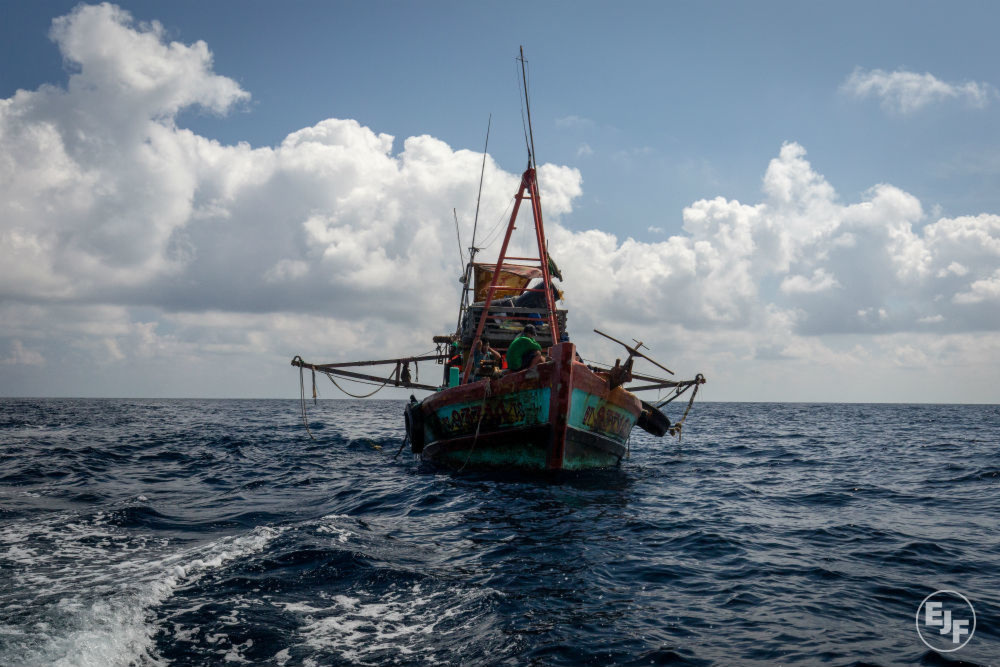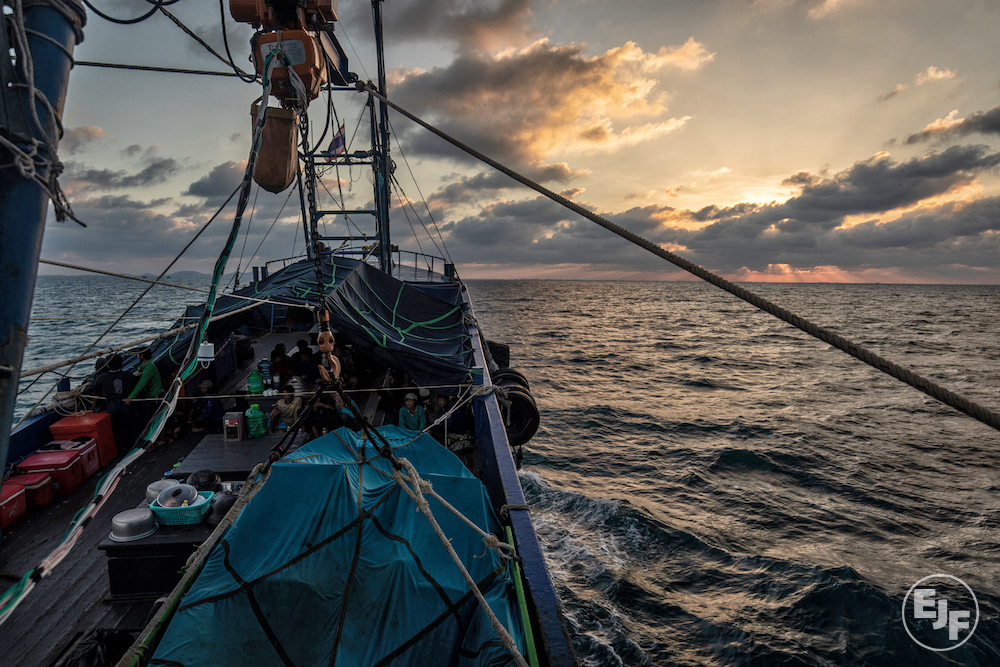
Out of the Shadows: Transparency is vital for legal, sustainable, ethical fisheries
Our oceans are in crisis, and new international commitments are desperately needed to protect them from illegal, unethical and unsustainable fishing practices. One easy solution is for nations and corporations to commit to sector-wide transparency. This is perhaps the easiest, most cost-effective way to combat illegal fishing operators that are causing so much damage to fish stocks and marine environments.
A positive step toward this came recently at the Our Ocean conference when Indonesia stepped up and made a pledge to improve transparency in its fisheries.
As the host country of the conference, Indonesia committed to “implement electronic fishing logbooks for Indonesian fishing vessels authorised to operate in 11 Fisheries Management Areas of the Republic of Indonesia and the High Seas.”
These e-logbooks – which store and transmit data on factors such as the precise location of fishing activity, fish species caught, and the type of fishing gear used – can substantially improve the reporting of catch data and the ability of governments and businesses to monitor and manage their fishing operations.
These relatively simple and cost-effective tools are key to bolstering supply chain transparency and traceability and thereby enabling more efficient and effective action to combat illegal, unreported, and unregulated (IUU) fishing. On top of reducing opportunities for under-reporting, mis-reporting or non-reporting, the digital transmission and storage of electronic catch data ensures that fisheries products in seafood supply chains can be traced all the way back to a specific catch. This is not only good for maintaining healthy fish stocks and protecting the marine environment, but also helps protect legal operators from being under-cut by illegal ‘pirate’ operators.
Indonesia, which has gained a reputation for dealing with IUU fishing with a firm hand in recent years, is to be congratulated for putting this measure in place. E-logbooks, which will apply to over 10,000 vessels by 2019, are the latest measure in a series of actions that includes banning trans-shipments at sea, publishing vessel tracking data and arresting hundreds of pirate fishing vessels.
Other countries have also started moving in the right direction. During last year’s Our Ocean conference, the government of Thailand committed to publishing information on its fishing fleet, which was partially achieved with the publication of their fishing licence list in August 2018.
But much more needs to be done, more urgently. Transparency is a game changer for the fight against IUU fishing and the future of our oceans.
EJF’s latest report Out of the Shadows sets out ten global principles for transparency in fisheries, which are economically viable, technologically achievable and logistically deliverable, today.
These low-cost, simple transparency measures are easy wins for governments looking to make a change. The publication of vessel licence lists and the mandatory use of unique vessel identifiers, for example, are virtually cost-free reforms that can make an immediate and substantial impact.
IUU fishing and related crimes thrive in the shadows, where nefarious operators can operate easily under the radar without ever risking of getting caught. EJF hopes more states attending Our Ocean next October will, like Indonesia, commit to furthering transparency in the fishing industry.
EJF’s ten principles for global transparency in fisheries recommend that all countries:
1. Give all vessels a unique number – which stays permanently with it.
2. Make vessel tracking data public – enabling managers, enforcement agencies and others to see who is doing what, where and when.
3. Publish lists of fishing licences and authorisations – perhaps the simplest and cheapest action of all, enabling everyone to know who is allowed to fish where and for what.
4. Publish punishments handed out for fisheries crimes – meaningful deterrents are central to eradicating rogue illegal operators
5. Ban transferring fish between boats at sea – unless pre-authorised and carefully monitored.
6. Set up a digital database of vessel information – data is only useful if it is accessible and actionable, simple databases that are available to managers and enforcement operators would transform their ability to act.
7. Stop the use of flags of convenience for fishing vessels – the scourge of the seas, the time to act against them has arrived.
8. Publish details of the true owners of each vessel – who takes home the profit? Understanding where the money goes is key to acting against corruption and illegal fishing
9. Punish citizens involved in IUU fishing, regardless of what flag they fly.
10. Adopt international measures that set clear standards for fishing vessels and the trade in fisheries products. Key conventions are ready to be implemented and enforced, there are no good reasons to wait.
SIGN UP FOR OUR EMAILS AND STAY UP TO DATE WITH EJF

